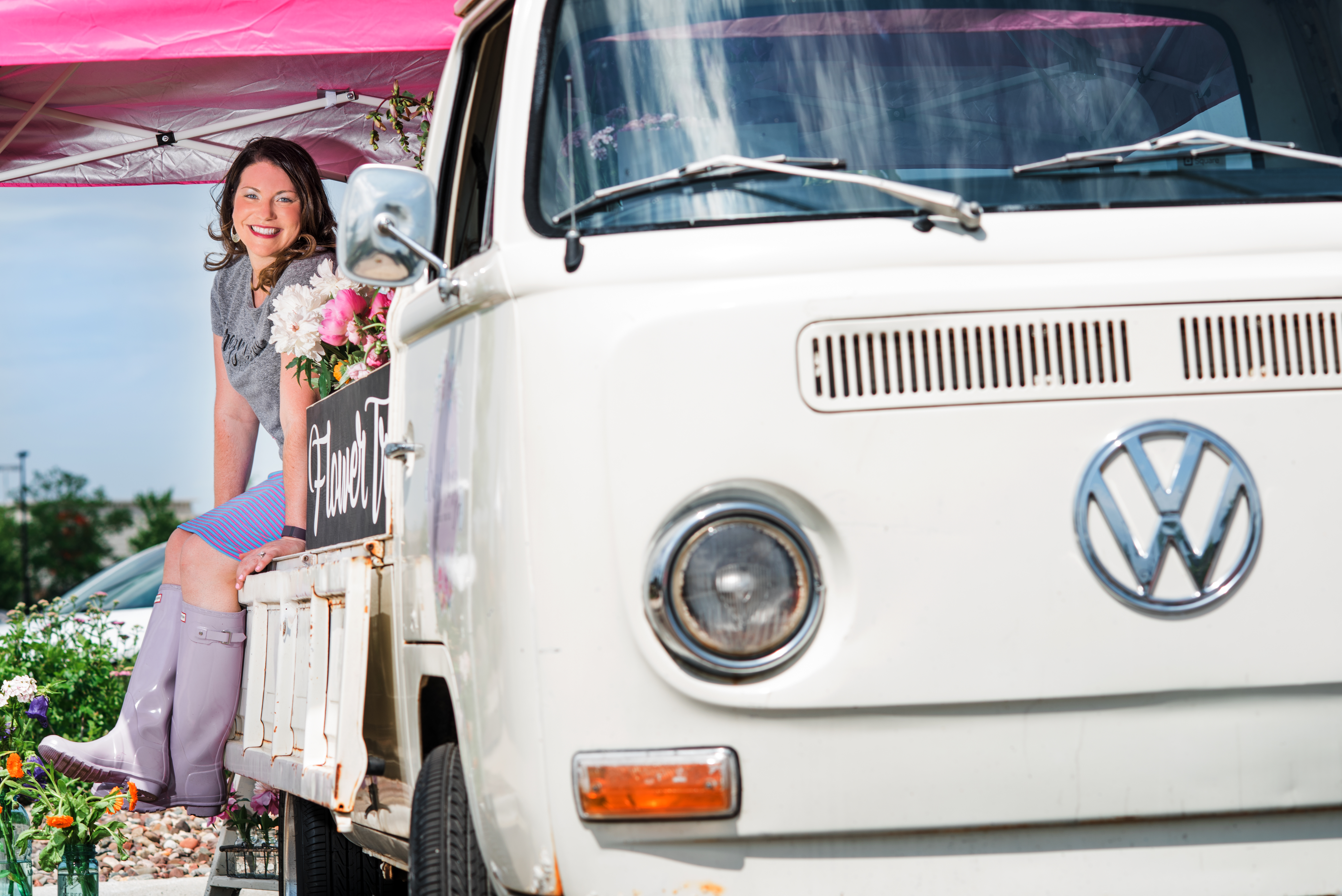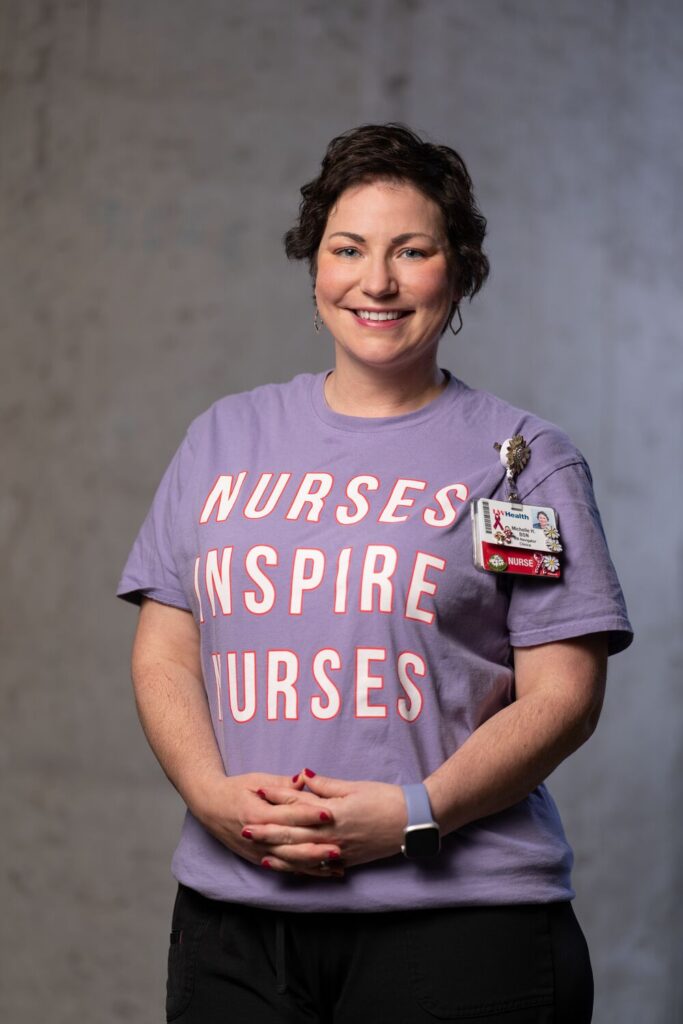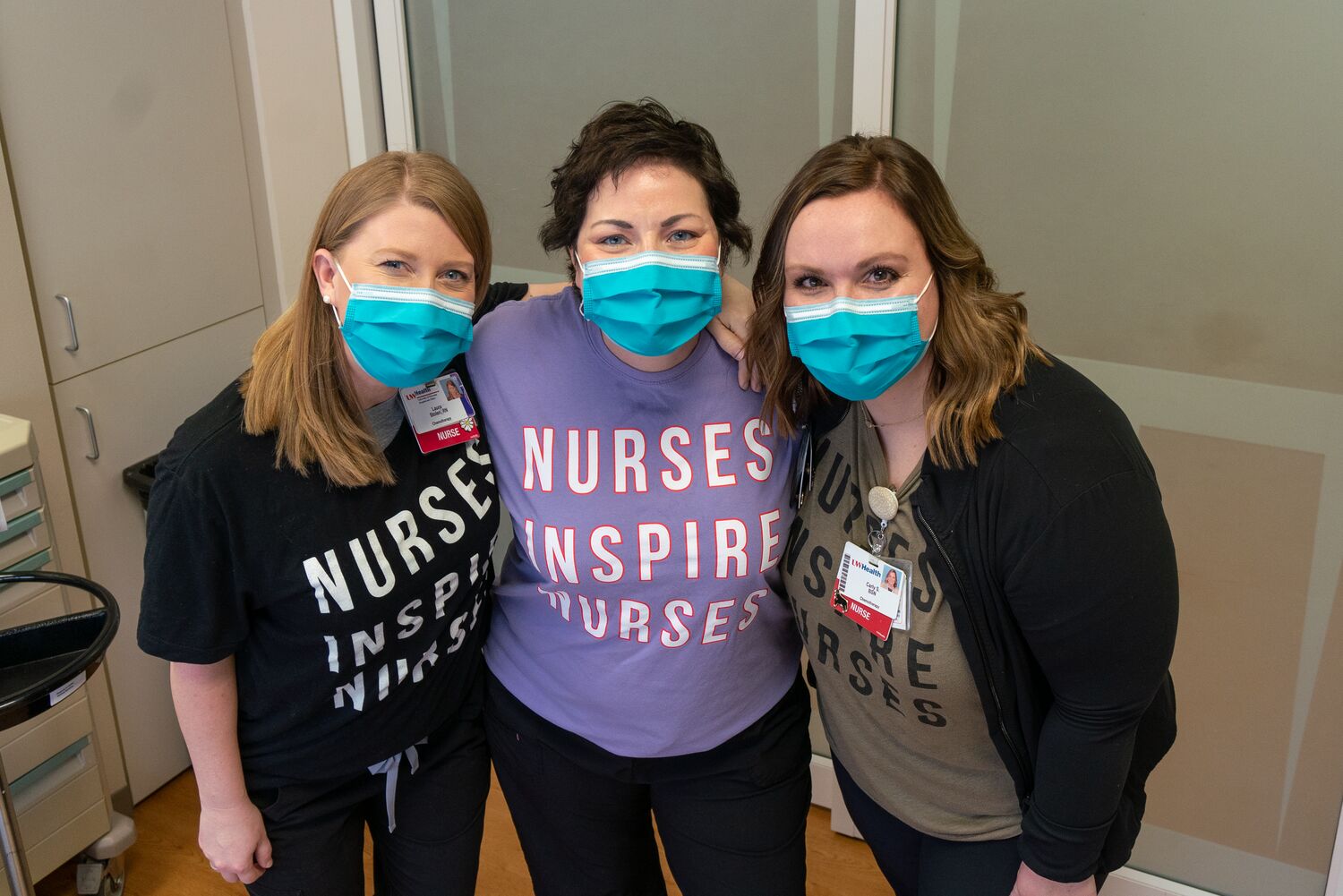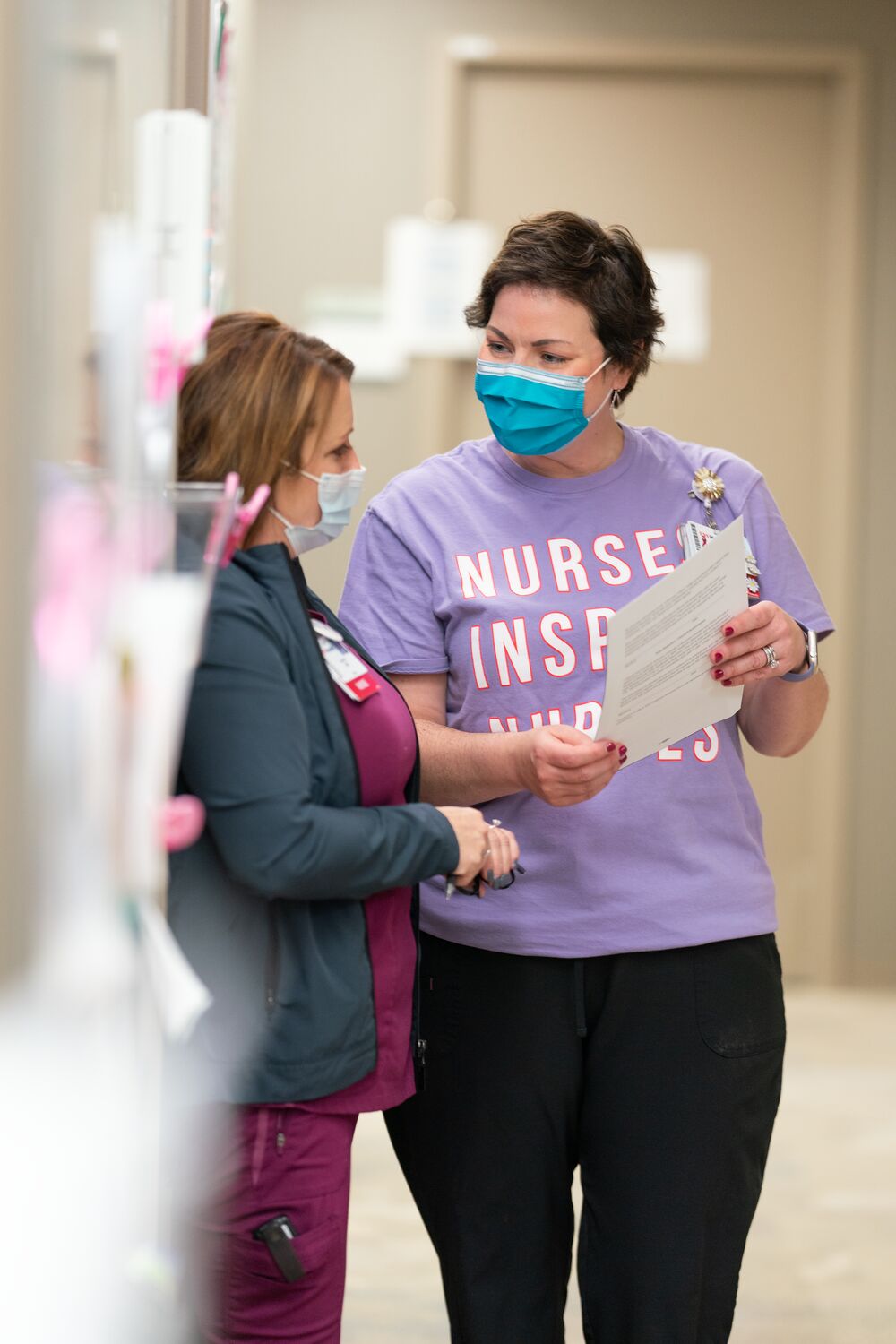
Michelle Hornung, BSN, RN, was looking for a creative outlet after working long hours as a trauma nurse. She found it online in Huntington Beach, Calif.: A 1969 Volkswagen Transporter that an old hippie used to haul surfboards to the beach. Picture a vintage VW van with its roof removed.
Her husband and father-in-law modified it so she could fill the rear with buckets of locally grown flowers, and the Crazy Daisy flower truck was born.
Michelle and Crazy Daisy became a bright spot at the Sun Prairie Farmers Market, and at local celebrations, where she offered a “build-your-own-bouquet” experience for bridesmaids, baby showers and corporate events.

“It was exactly the respite I needed from the trauma unit,’’ Michelle said. But funny thing, the flower truck eventually became a vehicle for sharing a breast cancer journey that would drive her to a new calling: Nurse navigator in the UW Health Breast Center.
First, a word on the truck’s name. Michelle’s team on the trauma unit already called her “Daisy” because of the amazing number of nominations she has received over the years for the DAISY Award that recognizes exceptional nurses.
“To date, I’ve had 20 nominations and one win,’’ she said. “And every one of them means the world to me, because they come from patients and families of patients.”
Michelle was 41, and had no family history of breast cancer, so when she found a lump in her right breast, she assumed it was a cyst. A mammogram, followed by an ultrasound and biopsy, revealed instead that she had Stage 2B triple-negative breast cancer.
“Never in a million years did I think I would be on this side of the hospital bed,’’ Michelle told her followers on Crazy Daisy’s Instagram and Facebook pages. Michelle said she initially shared her diagnosis on social media to let the flower truck’s fans know why she was canceling public appearances.
But she continued to share: her biopsy results, her chemo infusions, her lumpectomy and the day she had her head shaved. Some of her posts were brutally honest: crying ugly tears, struggling through brain fog and being plagued with the lingering taste of onions from the chemo. Others were funny. She dubbed her final eyelash “Lorraine the Lash,’’ a “tough old bird” who hung on long after all her other lashes fell out. And she showed off the daisy caps, T-shirts and goofy chipmunk costumes her nurse colleagues wore to cheer her up.

For some on social media, this was too much information.
“It was interesting to see how many followers I lost — and how many I gained,’’ Michelle said. As some flower fanciers faded away, she gained a new following among women with breast cancer. They’d direct message her for advice and ask about coming to UW Health from as far away as North Carolina for a second opinion.
“I learned that breast cancer is a sisterhood,’’ she said. When Michelle rang the bell in radiation oncology to signal the end of her own treatment, she was surprised by how sad she felt. “I had such a bond with my team when I was fighting cancer,’’ she said. “And I was left with this uneasiness, this feeling of, ‘Now what?’ “
The answer arrived three months later when the Breast Center posted an opening for a nurse navigator. While Michelle said she was blessed with an “all-star team” and great support, she saw ways the system could be more approachable for breast cancer patients.
“When this position was posted, I knew at that moment: This is my dream job,’’ she said. “Once you’ve been through breast cancer, you want to do ten-fold to help the next person.”

Check out more stories featuring the great work of our nurses in the 2022 Nursing Annual Report (pdf).
